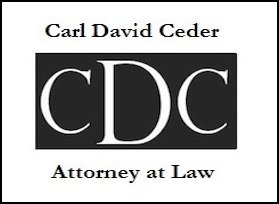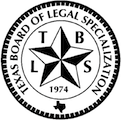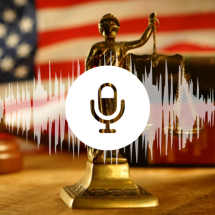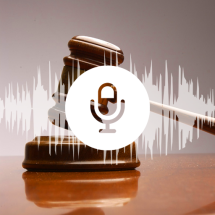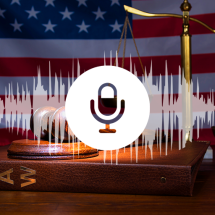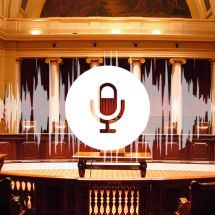Texas DWI Felony Offenses
Many driving while intoxicated (DWI) offenses in Texas can be classified as felonies and can result in more severe and significant criminal penalties and collateral consequences upon conviction. Some collateral consequences upon conviction can include not being able to vote, not being able to maintain a public office, own or possess any firearm and/or a gun, an inability to receive some types of governmental assistance, and/or limit certain types of professional occupations an individual can pursue. Individuals that have been convicted and are repeat offenders within the five years of their prior DWI offense are mandated to install an ignition interlock device on their vehicle.
If you have been charged with a Felony DWI in Texas, or any of the surrounding areas in the Dallas-Fort Worth Metropolis or anywhere in Central Texas, please contact the Law Offices of Carl David Ceder immediately. Attorney Carl David Ceder is knowledgeable in all areas of Texas Felony DWI laws and will make every effort to help you avoid the most severe penalties and punishments for your alleged offense.
Any of your DWI arrest that falls under one of the felony DWI charges will require you to get the service of an experienced Texas Felony DWI attorney as soon as possible. Although most DWI charges are filed as misdemeanors, certain factors can enhance a DWI charge to be a felony, and thus could carry with it much stiffer penalties.
It is a serious crime to be charged with drinking while driving (DWI) offense, even though it is your first related drinking offense and you barely are over the legal limit of 0.08. A conviction can make you face the consequences of possible jail time, fines, probation and a misdemeanor charge. While the punishment that comes with a DWI misdemeanor charge can be a severe and overwhelming one, it is not the harshest penalty as far as drinking while driving is concerned.
Different factors determine the charge of an individual accused of a DWI offense. An example of this is a misdemeanor charge for a first or second DWI offense, while any subsequent convictions; that involve a severe car accident causing a bodily injury, property damage could attract a possible felony charge.
A felony conviction can have a devastating effect on your life, and many Government agencies and private corporations now carry out background check on prospective employees, which allows them access to your criminal records when applying for this jobs. Some companies have strict policies when it comes to hiring employees, and this prevents them from hiring a felon, including those charged with a DWI felony.
WHEN DOES A DWI BECOME A FELONY?
We have different scenarios that can make one DWI result in a felony conviction. One of them is that you must have been convicted twice previously of drinking while driving offense, then your third DWI arrest can be charged as a third-degree felony.
Secondly, an intoxication assault that results in a non-fatal accident causing a severe hurt or bodily injury while the driver is drunk is considered as a third-degree felony, irrespective of it being your first or third DWI. Lastly, intoxication manslaughter in which an accident occurs and leads to someone being killed by a drunk driver can be classed as a second-degree felony.
TEXAS FELONY DWI ATTORNEY
Any felony offense is a serious one, and individuals that have been charged with a felony DWI charge in Texas and surrounding areas such as Dallas-Fort Worth or central Texas are advised to contact The Law Offices of Carl David Ceder immediately. Although most DWI charges are filed as misdemeanors, certain factors can enhance them to felony offenses, which carry increased penalties a result. Some Texas Felony DWI charges include:
- DWI (3rd offense or more);
- DWI with Child Passenger;
- Intoxication Assault;
- Intoxication Manslaughter;
- DWI with serious bodily injury.
TEXAS DWI FELONY ARRESTS
Some instances of DWI felony offenses in Texas are:
- Driving While Intoxicated with a Child Passenger – Section 49.045 of the Texas Penal Code states that an individual can be charged with DWI with child passenger offense if they are driving while intoxicated and they have a passenger in their car that is younger than 15 years old, punishable as a state jail felony criminal offense.
- Repeat DWI Offenses- Section 49.09(b) of the Texas Penal Code states that an individual can be charged with a repeated DWI offense if convicted of two or more previous DWI offenses or if they have previously committed intoxication manslaughter, punishable as a felony of the third degree.
- Intoxication Assault: Section 49.07 of the Texas Penal Code states that an individual can be charged with intoxication assault if while operating a vehicle, they are intoxicated and causes bodily injury to another person. There is no exception for causes of injury by accident or mistake from the driver. This type of felony is a third-degree one punishable and can be a second-degree felony if the individual caused injury to be a peace officer, fire-fighter, or emergency medical personnel.
- Intoxication Manslaughter: Section 49.08 of the Texas Penal Code states that an individual commits manslaughter, if while driving while intoxicated causes the death of another person. There is no exception for causes of death by accident or mistake from the driver. This type of felony is a second degree punishable and can be a first-degree felony if the individual causes the death of a peace officer, fire-fighter, or emergency medical personnel.
RANGE OF PUNISHMENT FOR TEXAS FELONY DWI OFFENSES
- DWI with Child Passenger: State Jail Felony (Section 49.045 of the Texas Penal Code) – which has a potential range of punishment: Confinement for any term of not more than 2 years or less than 180 days, and or a fine not to exceed $10,000.
- DWI – 3rd or more: 3rd Degree Felony: (Section 49.09 of the Texas Penal Code) which has a potential range of punishment: Imprisonment in the institutional division for any term of not more than 10 years or less than 2 years, and or a fine not to exceed $10,000.00.
- Intoxication Assault: 3rd Degree Felony (Section 49.07 of the Texas Penal Code) which has a potential range of punishment of Imprisonment in an institutional division for any term of not more than 10 years or less than 2 years, and or a fine not to exceed $10,000.
- Intoxication Manslaughter: 2nd Degree Felony (Section 49.08 of the Texas Penal Code) which has a potential range of punishment of Imprisonment in an institutional division for any term of not more than 20 years or less than 2 years, and or a fine not to exceed $10,000.
Contact Now
If you have been arrested for any felony charge of DWI, then contact an experienced Dallas-Forth DWI Defense Attorney to discuss the particular facts and circumstances of your case. Attorney Carl David Ceder is available to talk with you about representation for your DWI case in any area of in Dallas County, Collin County, Denton County, Tarrant County, Rockwall County, and any other surrounding areas. You can contact The Law Offices of Carl David Ceder at anytime for assistance at 214.702.CARL(2275) or at 469.2000.DWI(394). You can also e-mail Carl directly, at [email protected]; or to the office for general inquiries at [email protected]. Phones should be answered 24 hours a day/7 days a week for immediate and prompt assistance. E-mail messages will try to be responded to with 24-48 hours, depending on whether Carl and his team is in trial and/or is busy working on a case for a contested hearing.

